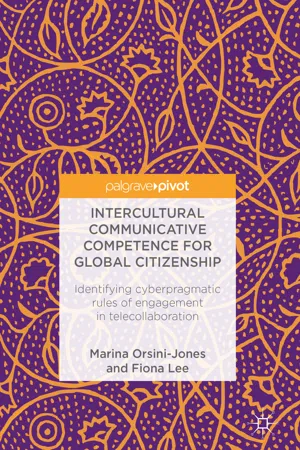This work aims to report on and discuss the CMC (Computer Mediated Communication) lessons learnt from the engagement with a small scale telecollaborative project, CoCo, between the UK and France, that was modelled on larger scale one, MexCo, between the UK and Mexico (Orsini-Jones, Lloyd, Gazeley, Lopez-Vera, & Bescond, 2015).
Telecollaboration or OIL (Online International Learning) is also referred to as Online Intercultural Exchange—OIE and Collaborative Online International Learning—COIL. O’Dowd and Lewis (2016, p. 3), refer to it as OIE and define it as “the engagement of groups of students in online intercultural interaction and collaboration with partner classes from other cultural contexts or geographical locations under the guidance of educators and/or expert facilitators”. In this study telecollaboration and OIL will be used interchangeably.
OIL has become one of the major ways of internationalising the curriculum for all subjects, not just languages, as reflected in a publication coordinated by staff who operate within the COIL fellowship at SUNY (State University New York): Globally Networked Teaching in the Humanities: Theories and Practices (Shulteis Moore & Simon, 2015), which includes examples from Performing Arts, Film Studies, Literature and Feminist theory. OIL projects aim to make the HE curriculum at each of the partner institutions involved more intercultural and international, in keeping with the strategic priority to encourage their students to become digitally literate global citizens. The IoC and the acquisition of global citizenship competences are priorities in the UK HE sector. Internationalisation, according to literature from the Higher Education Academy (HEA) prepares graduates to live in and contribute responsibly to a globally interconnected society (HEA, 2016). Implementing internationalisation in HE requires not only content to be modified, “it also requires changes in pedagogy to encourage students to develop critical skills to understand forces shaping their discipline and challenge accepted viewpoints” (Zimitat, 2008, p. 143). In the field of language learning these skills include the development of Intercultural Communicative Competence (ICC) as originally defined b y Byram (1997) and further developed by other scholars (e.g. Kramsch, 2009/2015, p. 199). Interculturality is more than accepting linguistic and cultural diversity: it is about interculturally competent speakers engaging in dialogues between cultures (Byram, 2012) while at the same time acknowledging that it is not just two cultures we are dealing with, or two languages, or two nations. Kramsch proposes to go beyond these dualities and talks about ‘symbolic competence’ (2006) to place ICC within a multilingual perspective (2009/2015, p. 199). The development of ICC competences, including the ability to critically reflect on one’s own cultural assumptions, to recognise and value cultural diversity, to feel empathy for others—can be challenging for both teachers and learners (Leask, 2008, p. 128), yet it is also transformational, leading to dynamic and reflective dialogue (Leask, 2015, p. 114). Orsini-Jones et al. (2015, p. 205) argue that the development of ICC through telecollaboration is troublesome, but brings benefits that outweigh the challenge it poses. Through telecollaboration the learner’s identity is negotiated and reconfigured.
Thorne states that Web 2.0 (definition coined by O’Reilly in 2005) technologies have enabled a novel “intercultural turn” in second language education (2010, p. 139) by facilitating distant connections not previously possible.
The work reported here reflects the shift from previous models of telecollaboration focusing on tandem language learning (e.g. O’Rourke, 2007), to the development of new intercultural competences for global citizenship for both staff and students involved in exchanges that do not necessarily involve a stress on language learning and teaching of a foreign language as their primary focus. The emphasis is on practising the intercultural competences and the digital literacies necessary to operate in an interconnected world both when using English as the shared language of communication online and when engaging in bilingual and/or ‘hybrid’ communication involving code-switching.
It could be argued that the polarisation of feelings towards the “others” caused by the referendum vote for ‘Brexit’ in June 2016 in the UK makes the raising of UK-based students’ awareness of Byram’s ICC components relating to knowledge, skills, attitudes and values (Byram, Gribkova, & Starkey, 2002) more urgent. There is an ethical and appealing dimension to OIL, as there is evidence (Tcherepashenets, 2015) that it ...
